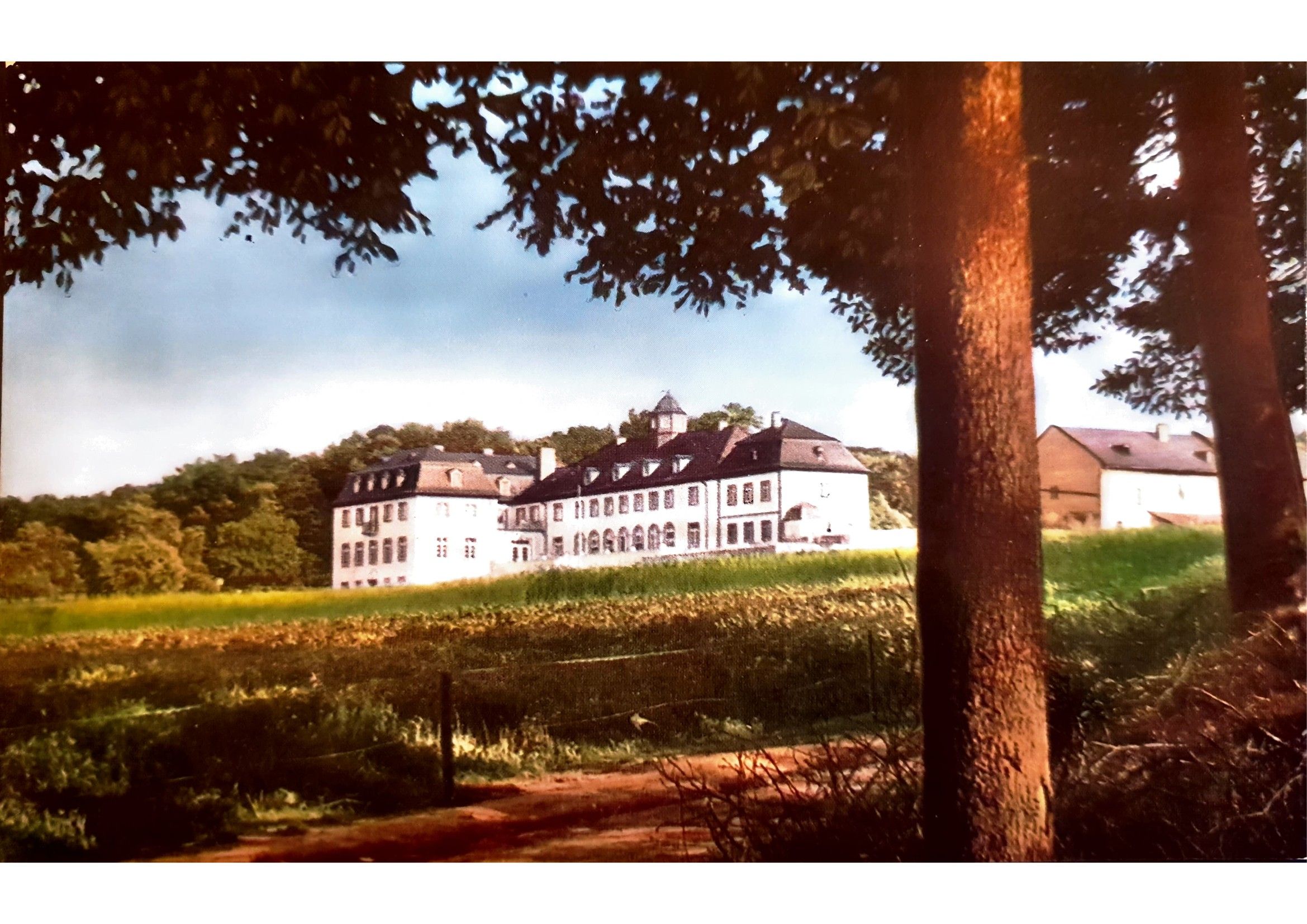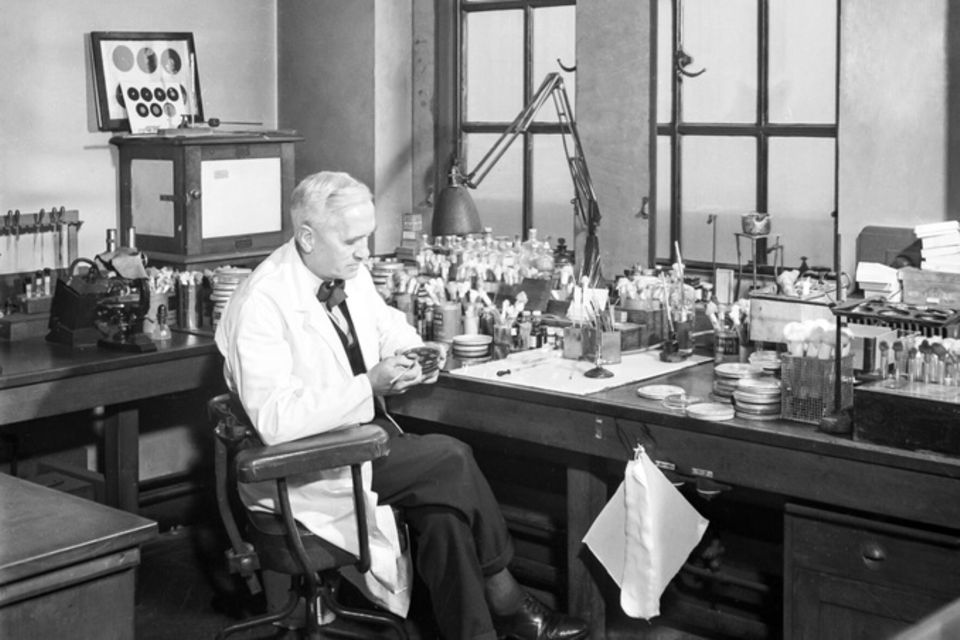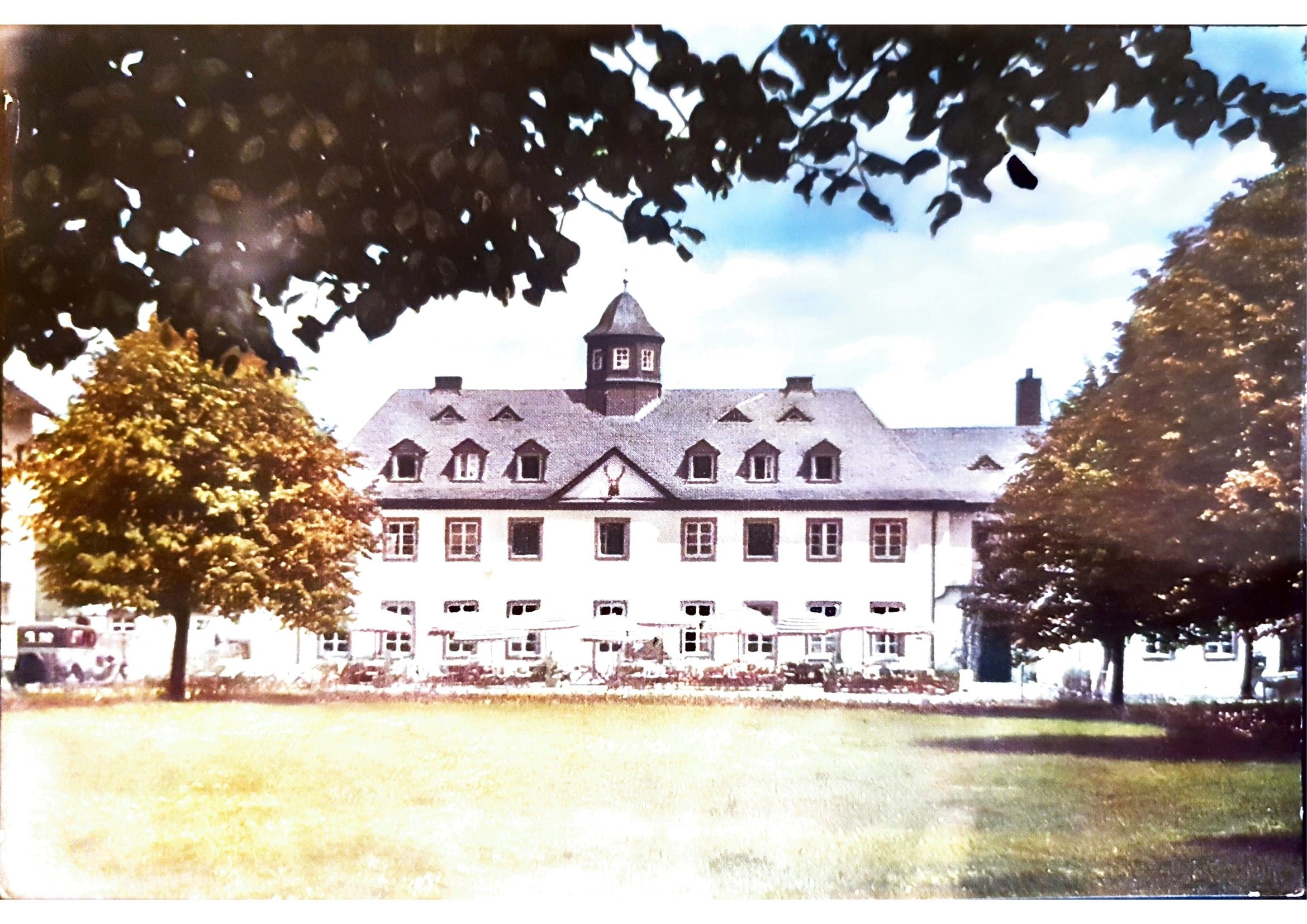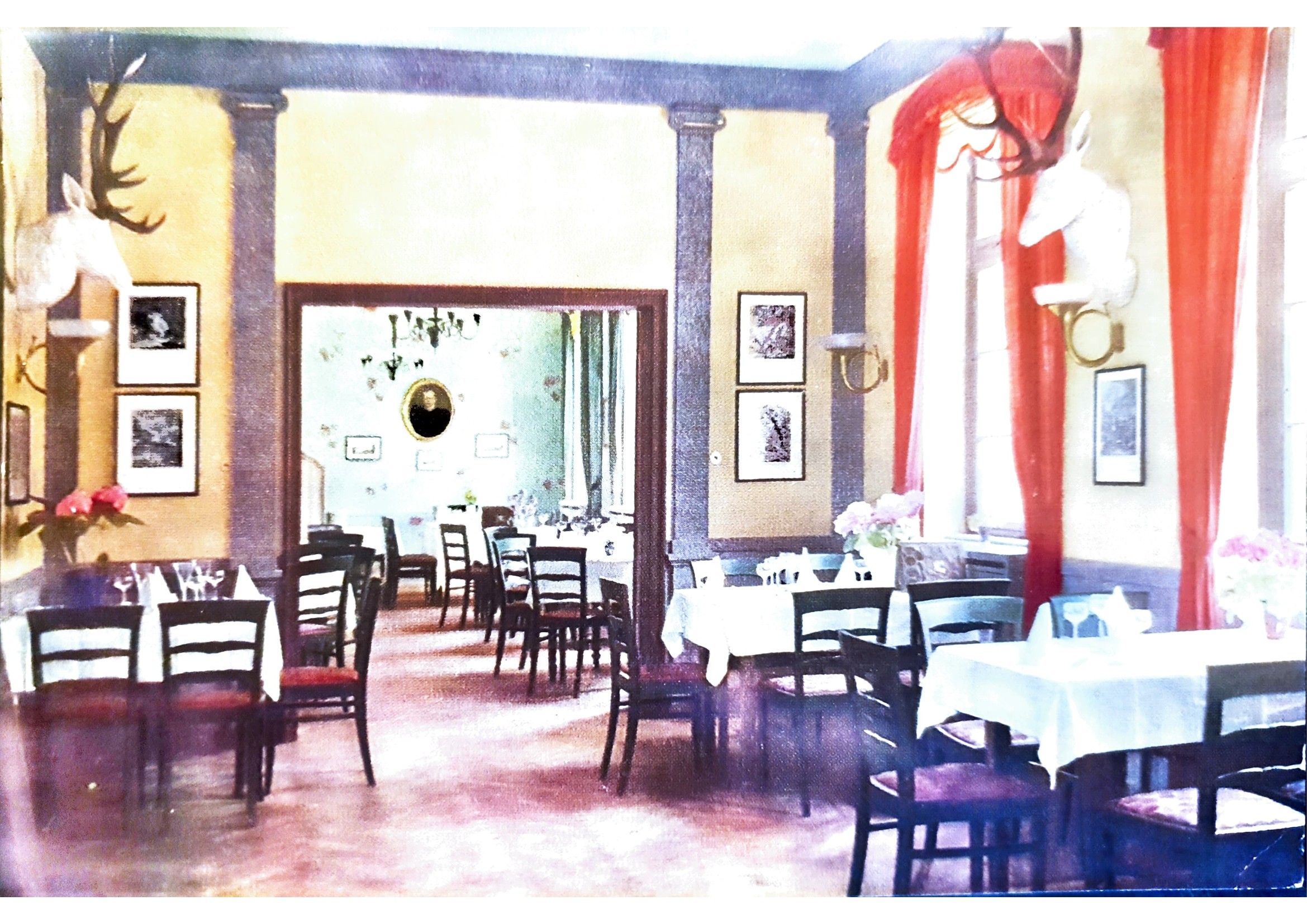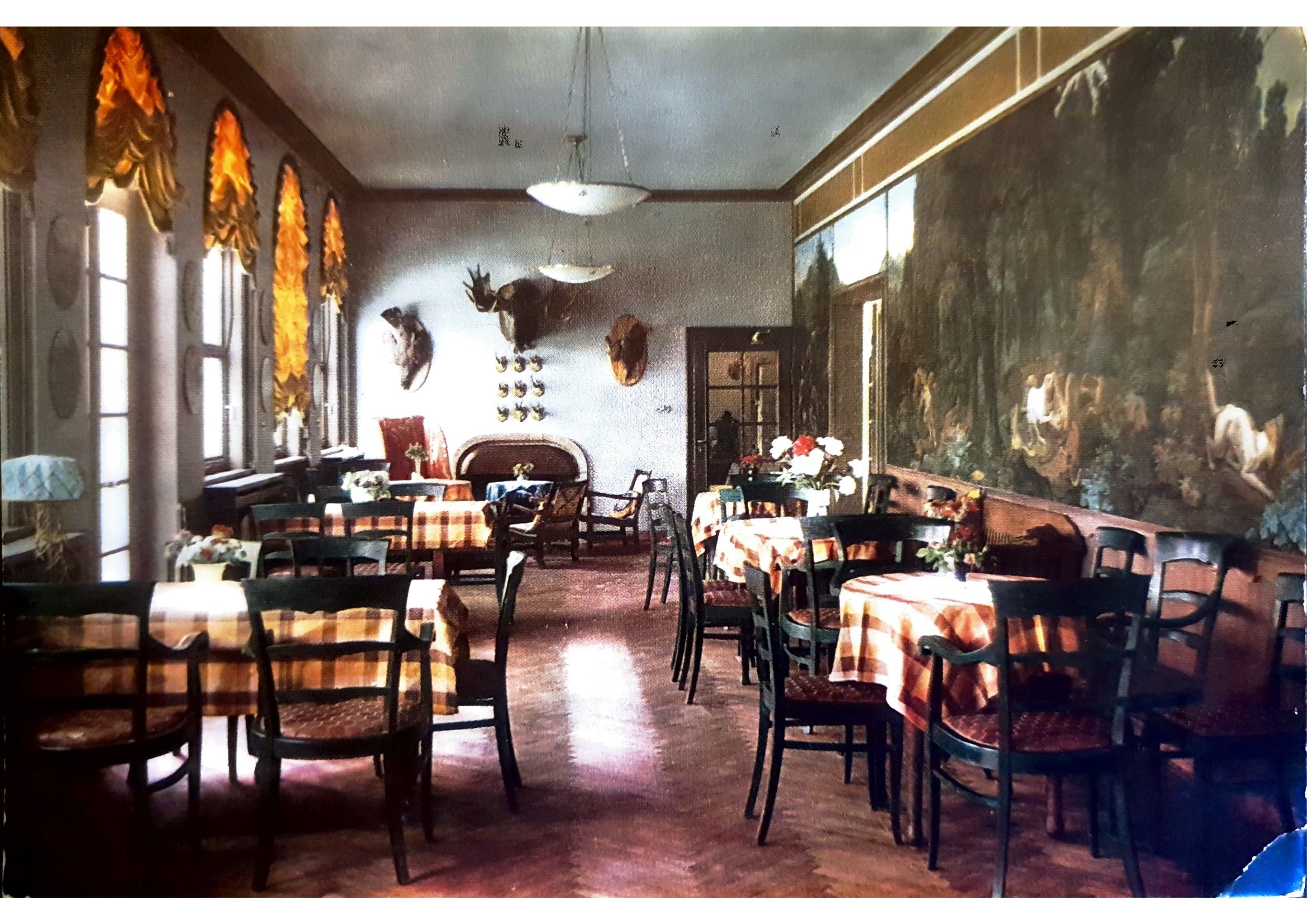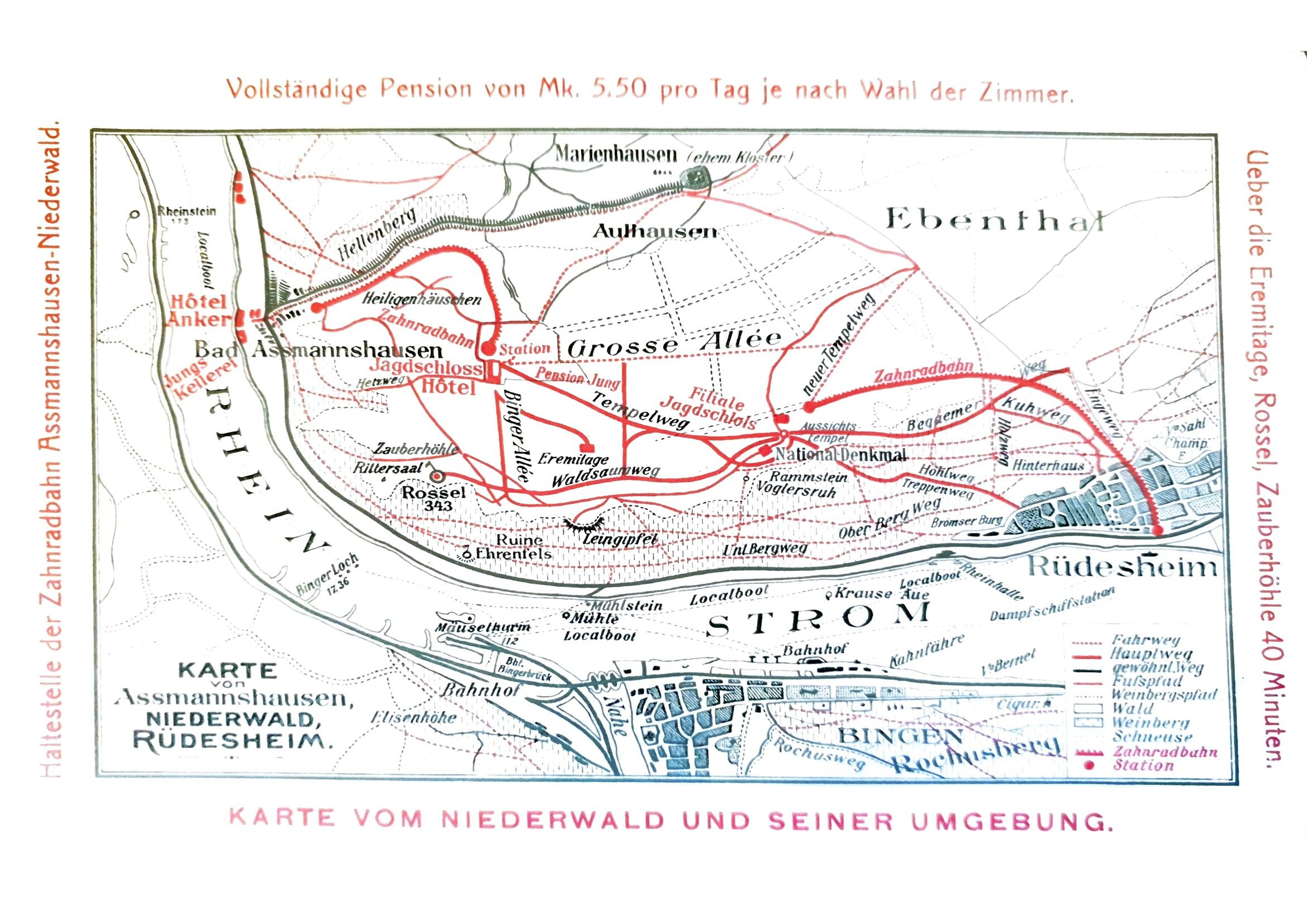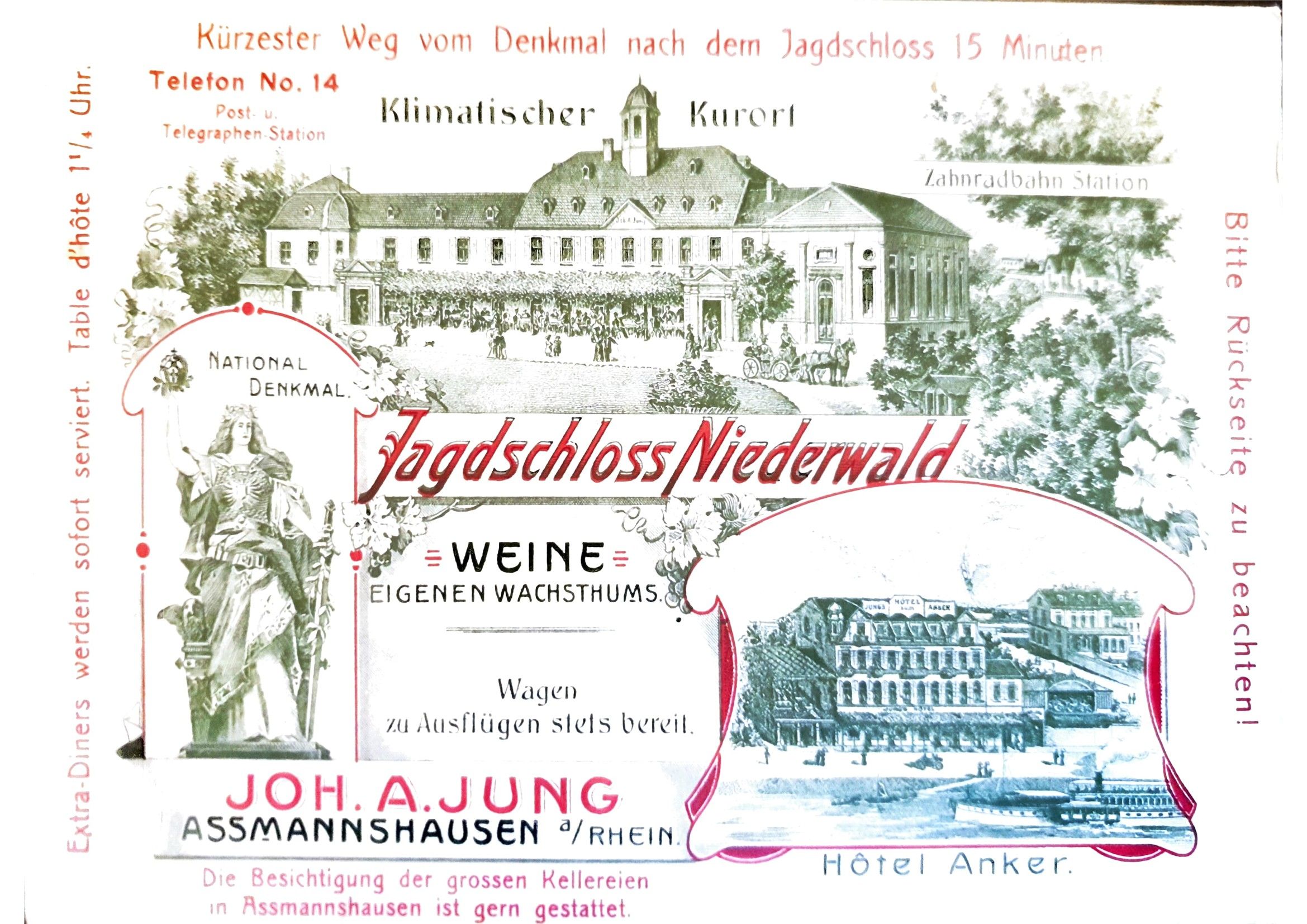Welcome to the Jagdschloss Niederwald - A place for special occasions and contemporary hospitality
Discover the quiet and charming location of our hotel, which is housed in an old noble residence and offers a special atmosphere for meetings and relaxation.
Our hotel combines the historical elegance of an old noble residence with modern comfort and contemporary hospitality. We see ourselves as a place for special occasions and offer the best conditions for successful meetings and relaxation.
The Concept
The concept of our hotel as a modern conference hotel was realized to create an ambience that inspires and supports new projects. We have revived the centuries-old knowledge of the special feel-good character of this place and offer our guests a unique experience.
Unique features
-
Quiet and charming location: Enjoy the idyllic surroundings of our hotel, which invites you to relax and unwind.
-
Historical ambience: Immerse yourself in the history of our old noble residence and experience the charm of times gone by.
-
Modern conference hotel: We offer modern conference facilities and support you in successfully tackling new projects.
Welcome to Hotel Jagdschloss Niederwald - History meets Hospitality
The Jagdschloss Niederwald has a rich history dating back to the 15th and 16th centuries. Originally a fief of the imposing Ehrenfels Castle on the Binger Loch, it was acquired by the Prince-Bishops of Mainz for the Counts of Ostein in 1705.
Under Maximilian von Ostein, the current main building was built around 1764 as a "Jagdschloss / Hunting lodge" on the purely agricultural property. The Dukes of Nassau took over the estate and the Jagdschloss in 1835 and began the park-like design of the "Niederwald", today's "Rheingau - Untertaunus Nature Park."
During the 19th century, the hunting lodge became Prussian due to Prussian rule. Before the war, the main building served as a family holiday hotel, during the war as a military lazarett, and subsequently as a recreational home for American officers.
In July 1948, the so-called "Niederwald Conference" took place in the "Green Salon" attended by Konrad Adenauer and the state leaders, among others. This conference laid the foundation for today's Constitution
In the mid - sixties the farming area was leased, and the Land of Hesse started step by step to convert the 'Jagdschloss' into a modern hotel and a place of exquisite hospitality.
75. Anniversary of the Niederwald - conference in our green salon.
1948 - 2023
Niederwald Conference in the "Grüner Salon" - History & background
The "Niederwald Conference" was a meeting of the eleven West German prime ministers that took place in 1948 with a total of three session periods at the Jagdschloss Niederwald near Rüdesheim am Rhein. For the second time, the topic of the conference was the three Frankfurt documents of July 1, 1948. In them, the western powers had given the prime minister the task of founding a western state. The first time, as an answer to this, she had drawn up the “Koblenzer Resolutions” at the Rittersturz conference near Koblenz. However, this reaction was not accepted by the western powers, so that new consultations were necessary. The most important result of the Niederwald Conference was the decision by the Prime Ministers of the countries in the western zones of occupation to agree to the Western Allies' request to found a western partial state without giving up the claim to an all - German nation state. They decided to prepare the drafting of a "provisional constitution". The constitutional convention at Herrenchiemsee later served this purpose.
On the way to the fundamental Law, the Jagdschloss Niederwald played a role as a conference venue and thus became a historic site of German constitutional history
Konrad Adenauer - CV & career of the most important initiators of the German Constitution
Konrad Hermann Joseph Adenauer (* 5. Januar1876 in Köln; † 19. April1967 in Rhöndorf; actually Conrad Hermann Joseph Adenauer) was the first Federal Chancellor of the Federal Republic of Germany from 1949 to 1963 and at the same time the first Federal Minister of the Foreign Office from 1951 to 1955.
The lawyer and member of the Catholic Center Party already had a political career during the German Empire and the Weimar Republic: He was mayor of Cologne, belonged to the Prussian manorial family and was President of the Prussian State Council. During the National Socialist era, he was relieved of his posts and imprisoned for a time.
Adenauer was one of the founders of the CDU, which chaired the party from 1950 to 1966. As President of the Parliamentary Council and as the first Federal Chancellor and Foreign Minister of the Federal Republic of Germany, he shaped an entire era. The 73-year-old when he took office campaigned for Bonn as the federal capital, stood for a policy of western ties and European unification and an active role for the Federal Republic in NATO. In terms of economic policy, Adenauer stands for the system of the social market economy. He pursued an anti-communist course at home and towards the Soviet Union and its satellite states.
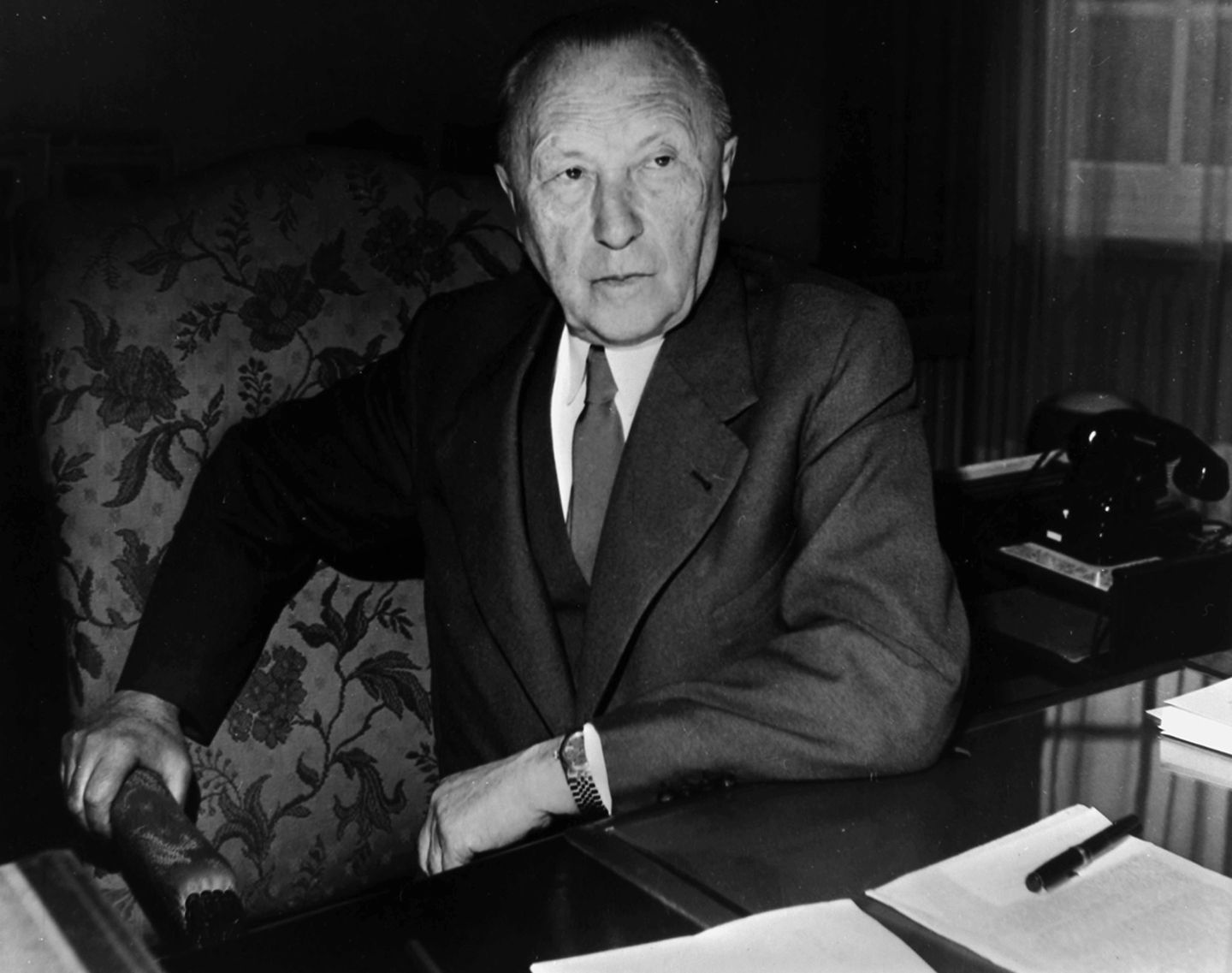
Quelle: https://de.wikipedia.org/wiki/Konrad_Adenauer
Cologne bread & peace sausage - how Adenauer laid a foundation for today's vegan food culture
Soy sausage is hip! And those who don't eat meat today are not viewed crookedly, but are seen as modern. Meat substitutes are not a new invention at all. As early as 1918, Konrad Adenauer had a veggie sausage (almost) christened “Peace Sausage” patented.
Adenauers "Friedenswurst"
Food was scarce during the First World War, and meat in particular became a luxury good. In order to protect the German civilian population from starvation, Adenauer, then deputy mayor of Cologne, invented the soy sausage at the end of 1916: a firm bread topping with spices, mainly soy-based, and traces of meat.
At that time, however, the inventor did not initially get a patent for it: because of a formal error, the German Reich refused him the patent and so the soy sausage was finally registered in England. On June 26, 1918, Konrad Adenauer received his official patent from the British King George V for the "process for improving the taste of protein-rich and fatty plant flours and for the production of sausages".
Adenauer tinkered on other inventions
The soy sausage is just one of many other, partially patented inventions by Konrad Adenauer. For example, he invented an electric insect killer and a stuffing egg that lit up from the inside to make it easier to stuff holes in clothing. The enthusiastic rose grower also developed a watering can with a collapsible spray head.
However, none of these inventions were very successful – just like the soy sausage with meat inserts, which, by the way, would not be compatible with the current food laws in Germany.
@von Solvejg Hoffmann / Link zum Artikel

